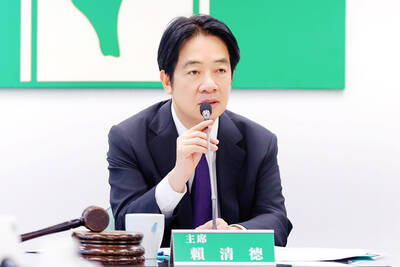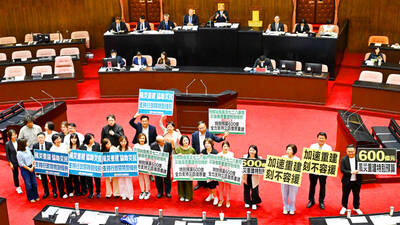The South Korean antitrust agency has formed a task force to investigate the licensing and business practices of the wireless technology company Qualcomm, the latest in a string of legal battles facing the company, officials said on Tuesday.
Qualcomm, based in San Diego, faces similar complaints in Japan, Europe and the US, where rivals are accusing it of abusing its market dominance in wireless technology to demand excessive royalties and block fair competition.
Qualcomm is known for developing code-division multiple access (CDMA) wireless technology, which is a rival standard to GSM technology. It makes money by selling chips that power cellphones, as well as collecting royalties or licensing its technology to other chip makers and mobile phone manufacturers.
The creation of a task force, which is modeled after the one investigating antitrust complaints against Microsoft, means that the case in question merits a full-blown investigation, said Na Yang-ju, a spokesman for the South Korean Fair Trade Commission.
But commission officials also acknowledged that the case against Qualcomm was more complicated than they had expected. A year ago, the commission ruled that Microsoft was guilty of breaching fair trade rules, a decision the company is appealing.
"We have been investigating Qualcomm's case since last April but we have found it to be a complicated case where facts are difficult to establish," a commission investigator, Lee Seung-kyu, said.
South Korea is home to several leading mobile phone makers as well as smaller companies that provide technology and components. More than 80 percent of the country's population of 48 million carry cellphones, all based on Qualcomm technology.
"Companies here have constantly complained about Qualcomm demanding too much royalty," said Kevin Lee, an industry analyst at Woori Investment and Securities in Seoul.
"The investigation can be seen as political pressure on Qualcomm to be more friendly toward South Korean companies which use its technology," Lee added.
Executives at the company said they had no comment because they had not yet received official queries from the commission.
Investigators from the commission searched Qualcomm Korea's two offices last April, seeking data on Qualcomm's business dealings with Samsung, LG and Pantech.
The investigation into Qualcomm was set off last year by complaints from Nextreaming and Thin Multimedia, two South Korean companies that make software that allows cellphone users to surf the Internet.

President William Lai (賴清德) yesterday criticized the nuclear energy referendum scheduled for Saturday next week, saying that holding the plebiscite before the government can conduct safety evaluations is a denial of the public’s right to make informed decisions. Lai, who is also the chairman of the Democratic Progressive Party (DPP), made the comments at the party’s Central Standing Committee meeting at its headquarters in Taipei. ‘NO’ “I will go to the ballot box on Saturday next week to cast a ‘no’ vote, as we all should do,” he said as he called on the public to reject the proposition to reactivate the decommissioned

US President Donald Trump on Friday said that Chinese President Xi Jinping (習近平) told him China would not invade Taiwan while Trump is in office. Trump made the remarks in an interview with Fox News, ahead of talks with Russian President Vladimir Putin over Moscow’s invasion of Ukraine. “I will tell you, you know, you have a very similar thing with President Xi of China and Taiwan, but I don’t believe there’s any way it’s going to happen as long as I’m here. We’ll see,” Trump said during an interview on Fox News’ Special Report. “He told me: ‘I will never do

The Legislative Yuan yesterday approved an aid and recovery package authorizing the government to allocate up to NT$60 billion (US$1.99 billion) for regions hit by Typhoon Danas and subsequent torrential rains last month. Proposed by the Executive Yuan on Aug. 7, the bill was passed swiftly after ruling and opposition lawmakers reached a consensus in inter-party talks on relief funding and assistance for disaster-stricken areas. The package increases the government’s spending cap from the originally proposed NT$56 billion to NT$60 billion, earmarked for repairing and rebuilding infrastructure, electricity systems, telecommunications and cable TV networks, cultural heritage sites and other public facilities.

FLEXIBLE FORCE: Only about 10 percent of small drones reach their target, an expert said, which is why it is important to make it easier to procure large numbers of drones The military is planning to recategorize military drones as “consumables/munitions,” rather than as aircraft, to speed up the procurement process, the army said yesterday. The Army Command Headquarters said the decision was made because drones, like munitions, need to be rapidly replaced, and thus should be categorized as consumables/munitions “to meet the army’s practical needs.” The headquarters’ confirmation came after the Chinese-language Liberty Times (the Taipei Times’ sister paper) early yesterday reported that the army was about to make the classification change based on the example of the US, which is Taiwan’s biggest arms provider. US Secretary of Defense Pete Hegseth announced a